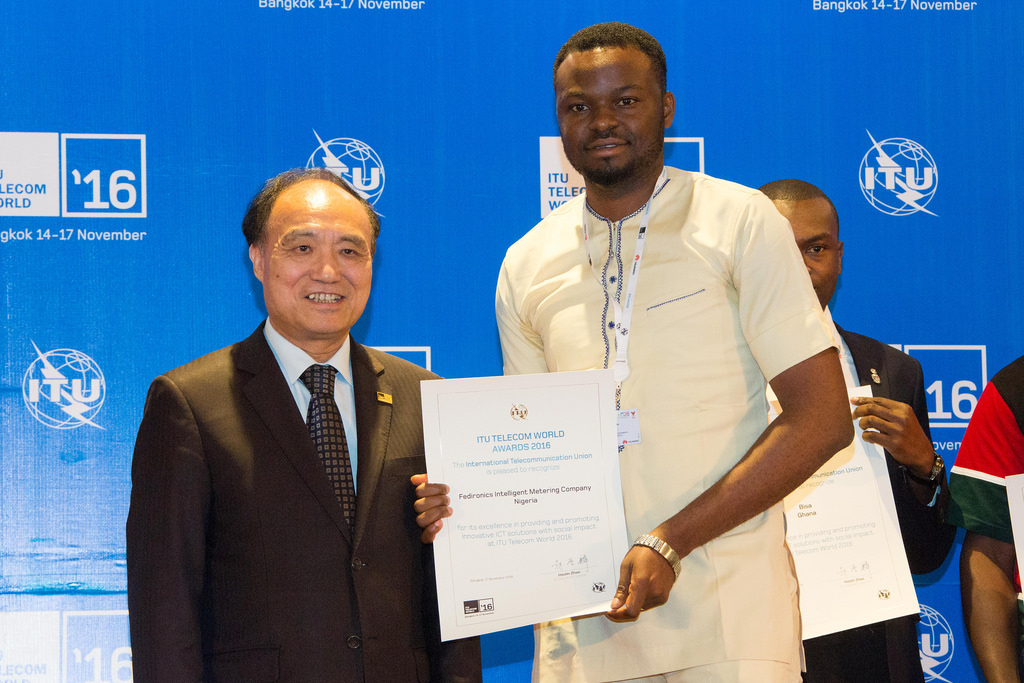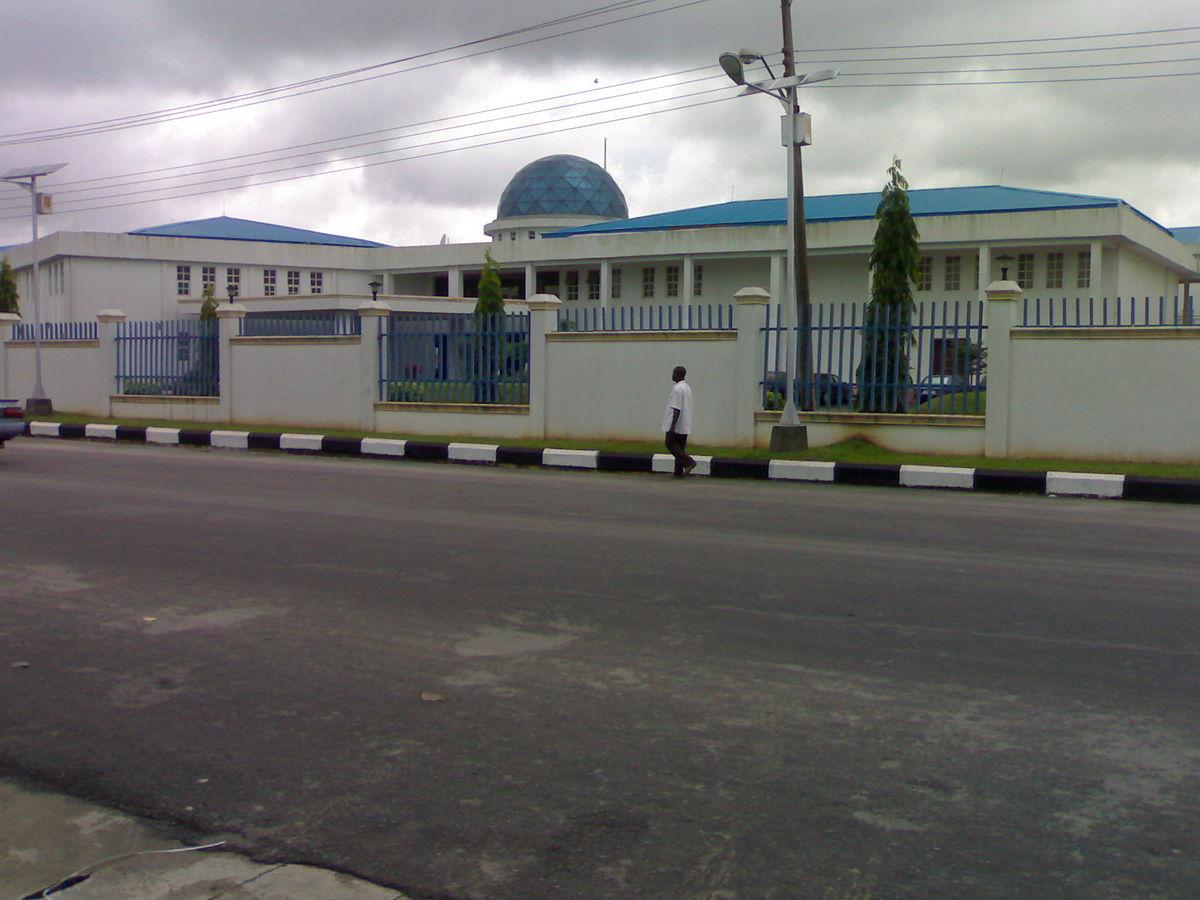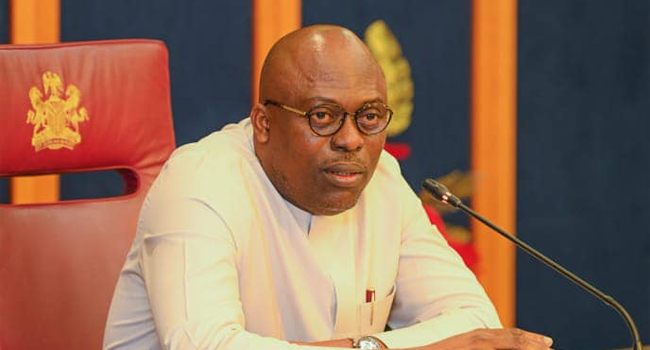An innovative smart meter that gives consumers more control over energy use has made it into the finals of the prestigious 2018 Africa Prize for Engineering Innovation.
Nigerian innovation iMeter helps prevent tampering with electricity meters and gives consumers more transparency and control over their energy use. Developed by electronics engineer Ifediora Ugochukwu, the Intelligent Meter (iMeter) and Advanced Metering Infrastructure (AMI) software is already set for rollout in two Nigerian municipalities, with private and public partnerships in place.
More than 30% of meters in Nigeria are tampered with or bypassed, and as a result, power utilities resort to bill estimation. The iMeter and AMI system gives consumers transparency and ensures they are billed only for the energy they use.
iMeter measures energy usage and connects to cell phones or computers equipped with AMI software so that consumers can manage their energy supply remotely. The system notifies power utilities of tampering, which discourages vandalism, improves power supply and reduces deaths from electrocution.
Other inventions in the finals include a device that detects malaria without drawing blood, a cheap and sustainable recycling method to recover precious metals and a textbook-sized science lab for kids.
The finalists come from Ghana, Nigeria, Uganda and Zimbabwe, with the latter working in South Africa. They were chosen for engineering innovations that provide new solutions.
“All four of our finalists have found novel ways to address critical challenges in their home countries – in fact, problems that are faced all over the world,” said Africa Prize judge, Rebecca Enonchong. “We’re proud to be part of the development of world-class African technologies, and to support emerging African entrepreneurs.”
The finalists were selected from a pool of 16 shortlisted candidates from seven countries spanning sub-Saharan Africa. For the first time, Zimbabwe and Ghana are represented by Africa Prize finalists.
“All 16 candidates have received tailored business mentorship, developing skills that last a lifetime. Engineers are among the best problem solvers in the world – and it’s imperative that we support those who embark on business ventures that advance technology in all fields,” added Enonchong.
Africa Prize innovations have made an impact in a variety of countries and sectors, addressing problems like climate change, food security, utilities infrastructure, and access to transport and education. The 2018 finalists tackle challenges in STEM education, household energy use, responsible resource use in the automotive industry and appropriate medical technologies for Africa.
Ugandan innovation Matibabu tests for malaria quickly, accurately and without drawing blood. Matibabu, which means ‘medical centre’ in Swahili, was developed by computer scientist Brian Gitta. It is a low cost, reusable device that clips onto the user’s finger. The results are available within one minute and no special expertise is required to operate it.
A red beam of laser light shone through the user’s finger detects changes in the shape, colour and concentration of red blood cells, all of which are affected by malaria. Gitta’s team is working closely with a large local hospital to run tests, and academic papers document their innovative work.
Of the 400,000 global deaths every year due to malaria, 90% are in sub-Saharan Africa. Malaria kills more children under five in this region than HIV. All available tests for malaria require blood samples, which are invasive, expensive and time-consuming, and rely on well-resourced laboratories.
Zimbabwean chemical engineer Collins Saguru developed AltMet, a process that recovers the precious metals found in the autocatalytic converters of all petrol and diesel vehicles. The common car part reduces the toxicity of vehicle gas emissions, and the converter itself contains the Platinum Group Metals (PGMs) platinum, palladium and rhodium. These are all valuable and useful for industrial processes, and on the European Union’s Critical Materials List, making a strong case for recycling them.
Existing recycling methods require high temperatures, and consequently, a lot of energy. Saguru dismantles used autocatalytic converters, crushes and leaches them before extracting the PGMs, using much lower temperatures than current recycling methods. This means the process is more affordable and emits fewer toxic gases. The chemical reagents used by AltMet are cheap, relatively common and environmentally friendly. Saguru, who lives and works in South Africa, is in negotiations with local partners to set up a comprehensive pilot project in the near future.
Finally, Ghanaian mechanical engineer Michael Asante-Afrifa developed Science Set, a mini science lab that contains specially developed materials needed for science activities and experiments.
Science Set is the size of a textbook and fits easily into a school bag and on a school desk. Science Set contains 45 different parts, ranging from circuit boards and wires to an electromagnet and mini lightbox. With these, students can perform 26 experiments that are already part of Ghana’s primary and junior high school syllabus. The kit is affordable, easy to use, quick to set up and designed to integrate seamlessly into the classroom. Asante-Afrifa’s team can produce 1,000 units a month and they have already sold more than 4,000 sets in Ghana.
The four finalists will pitch their innovations to a panel of judges and a live audience in Nairobi, Kenya, on Friday 13 June 2018. The winner will be announced at the event and will receive £25,000 with £10,000 awarded to each of the runners up.
The Africa Prize is the continent’s biggest prize dedicated to developing the entrepreneurial skills of engineers.
“Engineering is an economic and social change agent that is under-supported in Africa. The Royal Academy of Engineering’s programme provides a unique package of tailored support that includes funding, comprehensive business training, bespoke mentoring and access to a high-profile network of experienced engineers and experts. Anyone who participates in the Africa Prize will find a lifetime of value from this support,” said 2017 winner Godwin Benson, who developed the Nigerian education app, Tuteria.
The fifth Africa Prize for Engineering Innovation is now open. Individuals and small teams living and working in sub-Saharan Africa, and who have an engineering innovation, are invited to enter. Potential entrants can find more information here. The deadline for entries is 23 July 2018.
The other 12 candidates on the 2018 Africa Prize shortlist are:
- Alvin Kabwama from Uganda with UriSAF Maternal and Sexual Reproductive Health Care Kit, which tests urine quickly, accurately and affordably
- Arthur Woniala from Uganda with Khainza Energy Gas, a cheap biogas made from manure and safe for household use
- Brian Mwiti Mwenda from Kenya with The Sixth Sense, a handheld echolocation device with ultrasonic sensors that alert visually impaired users to objects nearby
- Daniel Taylor from Ghana with HWESOMAME, a low-cost smart sensor that accurately detects soil conditions and notifies farmers via text or phone call
- Emeka Nwachinemere from Nigeria with Kitovu, an online platform that helps farmers in remote locations to increase crop yields and sell their produce
- Esther Gacicio from Kenya with eLearning Solutions, an interactive online programme that hosts courses for individuals or serves as a tool for training institutions
- Lawrence Okettayot from Uganda with Sparky Dryer, a low-tech dehydrator that dries fruit and vegetables to extend their shelf life and reduce food wastage
- Monicah Mumbi Wambugu from Kenya with Loanbee, a mobile phone application that calculates the user’s credit scores and grants micro-loans
- Nges Njungle from Cameroon with Muzikol, an online music marketing and social media app designed to meet all the career needs of musicians
- Nnaemeka Chidiebere Ikegwuono from Nigeria with ColdHubs, solar-powered walk-in cold rooms that extend the life of perishable food tenfold
- Peter Kariuki from Rwanda with SafeMotos, an app that connects commuters to the safest motorcycle drivers in Kigali, Rwanda
- Shalton Mphodisa Mothwa from South Africa with AEON Power Bag, which allows users to charge their phones on the go by converting radio waves and solar energy into power.

 Sports2 days ago
Sports2 days ago
 News5 days ago
News5 days ago
 News5 days ago
News5 days ago
 The Oracle4 days ago
The Oracle4 days ago
 Opinion3 days ago
Opinion3 days ago
 National5 days ago
National5 days ago
 Featured4 days ago
Featured4 days ago
 Adding Value3 days ago
Adding Value3 days ago











